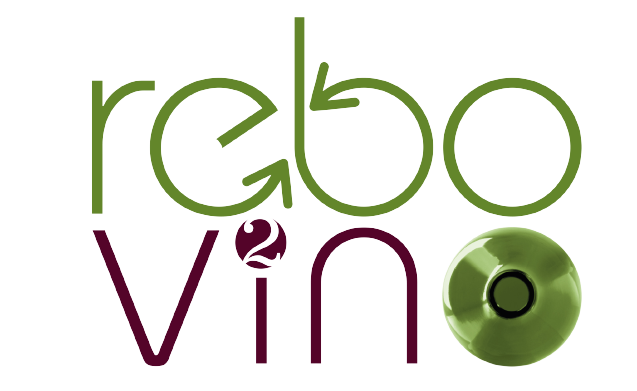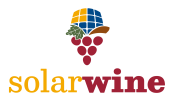
REBO2VINO Operational Group: Circular economy for the reuse of wine bottles in the wine sector
- Type Operational group
- Status Filled
- Execution 2022 -2025
- Assigned Budget 563.721,9 €
- Scope Supraautonómico
- Autonomous community Andalucía; Cataluña; Madrid, Comunidad de
- Main source of financing CAP 2014-2020
- Project website GO REBO2VINO
To analyze the feasibility of implementing a glass bottle reuse system in the wine industry at the national level, as a sectoral contribution to the Spanish Circular Economy Strategy.
- Measuring the potential of the glass bottle reuse system in the wine sector at the national level, based on each producer's markets, distribution channels, and product categories.
- Validation of a standard bottle to implement container reuse in the sector.
- Identification of barriers, limitations, and opportunities for implementing a packaging reuse system in Spain on a global scale.
- Technical, economic, and environmental viability of the reuse system for the wineries participating in the project's pilot test.
- Consumer perception study.
- Training wineries to implement the reuse of glass bottles.
- Simplified Life Cycle Assessment (LCA) and Product Environmental Footprint (PEF) technology tool for environmental analysis of the glass bottle reuse system for wine producers in Spain.
- Strategy for transferring project results to the sector and stakeholders.
- Consumers are increasingly committed to respecting the environment and applaud all initiatives aimed at implementing a circular economy.
The REBO2VINO project has analyzed the impact and technical, economic, and environmental feasibility of a glass bottle reuse system in the Spanish wine sector for the HORECA channel.
It has been developed over 29 months, from October 2022 to March 2025. To launch the project, an Operational Group has been created, led by the Spanish Wine Federation and made up of nine other entities representing different stages of the wine value chain and life cycle.
The Rebo2vino project has been developed around 5 technical activities that have allowed the stated objectives to be achieved:
- Market situation.
- Preparatory Actions.
- Pilot test.
- Feasibility analysis.
- Communication actions.
A SWOT analysis and a survey of wineries were conducted to identify the main opportunities and barriers to implementing glass bottle reuse in the wine sector, which served as a starting point.
A standard bottle has been designed to be shared across the industry, with features that extend its useful life and withstand multiple washing and filling cycles. Through a pilot test, technical and economic information was gathered on the reuse cycle of a glass bottle, analyzing everything from its production and shipment from the display window, to its bottling at the winery, its transportation to the restaurant, and its subsequent washing and return to the winery.
The pilot test has allowed us to identify some critical aspects in the reuse process, the most relevant being:
- Additional storage space (in restaurant and cellar, as applicable)
- Adaptation of the bottling system and quality control protocols.
- Label modification (wash-off) and secondary packaging (reusable plastic boxes for storage and transport)
- Need for more stock of finished product
- Traceability systems for bottle returns
- Greater weight of boxes in transport
- Need for awareness and training programs in the hospitality and consumer sectors.
REBO2VINO has designed various tools that will help wineries and the industry make decisions regarding the possible future implementation of reuse:
- A Life Cycle Assessment tool to understand the environmental impact of our reusable bottles and assist wineries in their decision-making.
- Software to facilitate management and collect all the information on bottle collection cycles and the various agents involved.
- A guide to best practices for wineries, with key aspects to consider when implementing a reusable model, including packaging design, product selection and catering, logistics, and safety and traceability.
Contrasting data on the impact of reuse in the wine sector has been obtained based on life cycle assessments, including all impact categories and at all stages of the life cycle.
A national extrapolation exercise was conducted, taking into account the wine production and consumption flows in each Autonomous Community. Two possible reuse models were compared:
- MODEL reuse with individual pool (each winery has its own bottle pool).
- MODEL reuse with collective pool (all wineries share the bottle pool).
The economic analysis was based solely on the model's operating costs (assuming full capacity, a 100% rate of return, and optimized transport). The investment costs required for the implementation of each model were estimated separately and would need to be considered separately.
A perception analysis was conducted to determine the degree of consumer acceptance of a reusable wine bottle, testing different reuse cycles (5-20 cycles) with increasing levels of wear. The results of this study showed that:
- The reused bottle is not a determining factor in the choice of product; other factors such as brand or price are predominant.
- There is some misunderstanding about the concepts of reuse and recycling.
- There is no rejection of reusable bottles due to scuffing (wear marks) up to 10 cycles. After 15-20 cycles, rejection is more common, although it is not associated with poor wine quality.
The economic and environmental viability of a reusable model is highly sensitive to a series of parameters that are crucial when making a global assessment applicable to the entire sector.
The key factors are:
- The reverse logistics distance.
- The number of rotations of the bottle.
- The cost of washing.
Therefore, it was necessary to conduct a sensitivity analysis of these three key factors, which allowed us to establish the limits that will determine the viability of the reuse model.
Therefore, the first lesson learned from the project is that it is not possible to conclude whether a reuse system is generally viable or not for the wine sector; rather, its viability will depend on each case, each circumstance, and each type of product. This is precisely one of the main advantages of this project, where, thanks to the LCA tool developed, each winery will be able to analyze and understand the environmental and economic impact of using a reusable model versus the current single-use system, based on its specific situation.
The two pilot tests have allowed for the evaluation of two different reverse logistics scenarios, the results of which have been highly influenced by the location of the washing plant:
- In the case of the Familia Torres pilot (in Catalonia), with the bottle manufacturing plant and the washing plant very close (88 km), the reusable system has been profitable both economically and environmentally.
- In the case of the González Byass pilot (in Jerez), with the bottle manufacturing plant and the washing plant very far away (2,138 km), the reusable system has not been profitable either economically or environmentally, mainly due to the long distance of reverse logistics.
Extrapolation to the national level using the two models analyzed has shown that, in an individual model, where each winery has its own bottle pool, reuse is neither environmentally nor economically profitable.
However, a model where all wineries share the bottle pool would have a lower cost and environmental impact, with a potential 29% reduction in CO2 emissions. This would be conditional on a reverse logistics distance of less than 220 km and a minimum of 7-8 rotations.
The results of this project have demonstrated that implementing a reuse system based on a collective model represents a future opportunity for the wine sector, which could be developed in a complementary manner to the current recycling system, in which wineries have been investing for years with positive results.
However, it is not exempt from the following challenges:
- Infrastructure: At least 15 washing plants would need to be built in Spain, with an estimated investment of €45-60 million.
- Logistics management.
- Washing cost.
- Consumer perception.
In conclusion, Rebo2vino has made it possible to identify and analyze the main barriers, limitations, opportunities, and potential of a possible glass bottle reuse system in the wine sector, applying the principles of the circular economy. This provides the wine sector, for the first time, with proven technical and economic data on the potential for implementing a reusable model on a national scale, which will be key for future decision-making.
The official project website ( https://rebo2vino.es/ ) has been updated with regular posts on project progress and events. Highlights include:
Participation in the LCAFood 2024 International Congress.
Experiences shared by the Operational Group's wineries at the 2nd Meeting for Innovation in Food Packaging.
Meeting of the Operational Group at the González Byass Winery to define the final results of the project.
In addition, project members have shared these developments on their respective websites, such as ESCI-UPF News, Familia Torres, and the Spanish Wine Federation (FEV). An account on X (formerly Twitter) was created to disseminate project content ( https://twitter.com/rebo2vino ).
Various materials were designed and produced to support dissemination, including a brochure with the final results of the project, distributed on the closing day in Madrid, and a promotional video produced with technical support from Artica+i.
Press releases were issued through FEV and other members of the Task Force, reaching more than 700 contacts in specialized and general media.
Ultimately, the REBO2VINO project's communication and outreach plan has been successful, ensuring widespread dissemination of the results through multiple channels: the website, social media, media, digital materials, and specialized events. This has generated a significant impact on the wine sector and raised awareness about glass bottle reuse.
- To determine the quantitative scope of application of the wine bottle reuse system in Spain and the interest of producers in introducing reusable packaging.
- To design and validate a standard reusable bottle model to facilitate its implementation in Spain, in order to explore its possible approval at European level.
- Identify the main barriers, limitations and opportunities for the implementation of the system in the Horeca channel and propose solutions to overcome these barriers through a guide to good practices.
- Design a real pilot test of the reuse model, integrating digital applications for traceability and assessing its technical, economic and environmental viability.
- Develop a simplified technological tool to guide wineries on the potential environmental benefits of reusing glass bottles.
- Design the communication and dissemination plan for the project in the wine sector.
- Measuring the potential of the glass bottle reuse system in the wine sector at the national level.
- Validation of a standard bottle to implement container reuse in the sector.
- Identification of barriers, limitations, and opportunities for implementing the system in Spain on a global scale and training wineries to implement glass bottle reuse.
- Technical, economic, and environmental viability of the system in the wineries participating in the pilot test and consumer perception study.
- Simplified technological tool for Life Cycle Assessment (LCA) and Product Environmental Footprint (PEF) for environmental analysis of the system.
- Strategy for transferring project results to the sector and stakeholders.
- Coordinator/entity name: Spanish Wine Federation (FEV)
- Coordinator/entity email: info@fev.es
- Sociedad ecológica para el reciclado de envases de vidrio (ECOVIDRIO)
- Asociación española de codificación comercial (AECOC)
- Confederación empresarial de hostelería de España
- Federación española del vino (FEV)
- Miguel Torres
- S.A
- Bodega González Byass Jerez S.L.U.
- Verallia Spain S.A.
- INDRA soluciones tecnologías de la información S.L.U
- Consorci Escola superior de comerç internacional - Universidad Pompeu Fabra (ESCI-UPF)
- ARTICA ingeniería e innovación
- S.L





